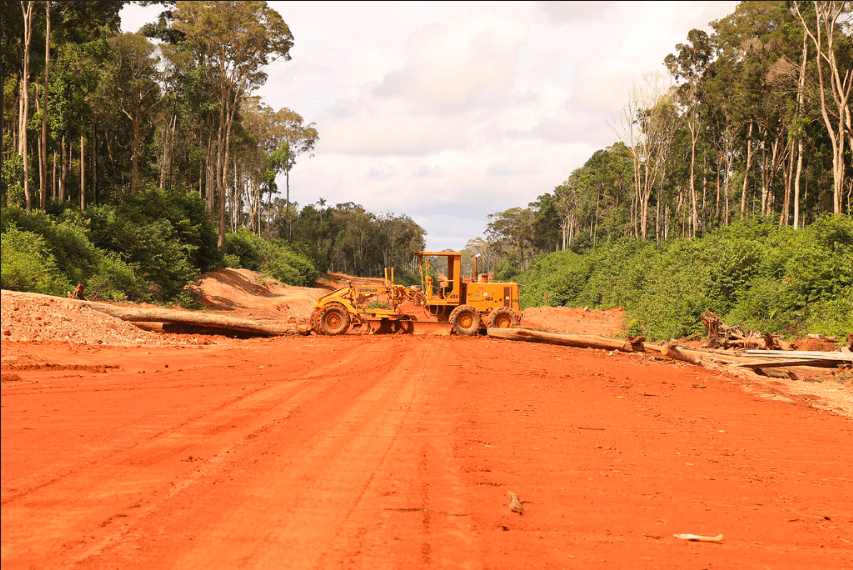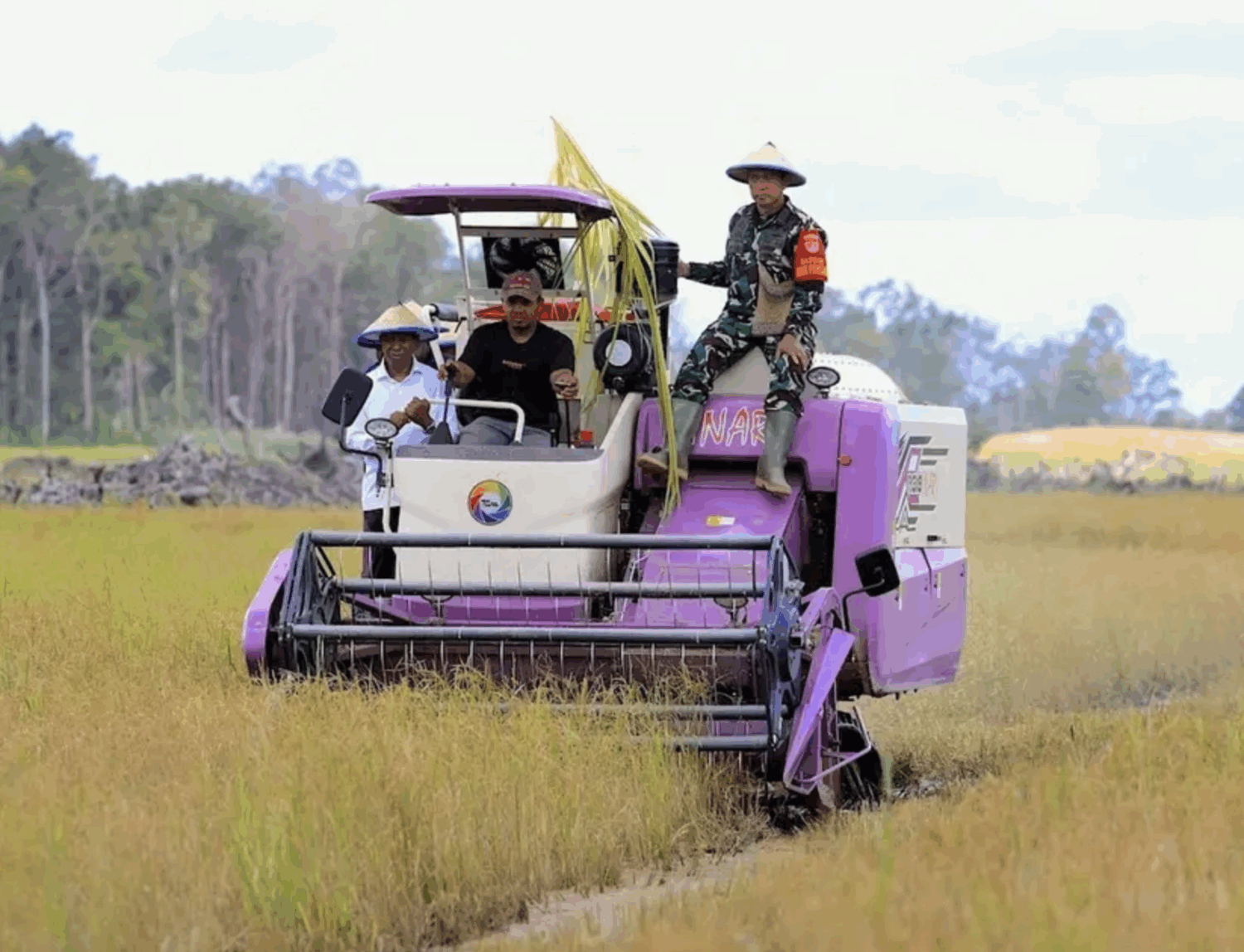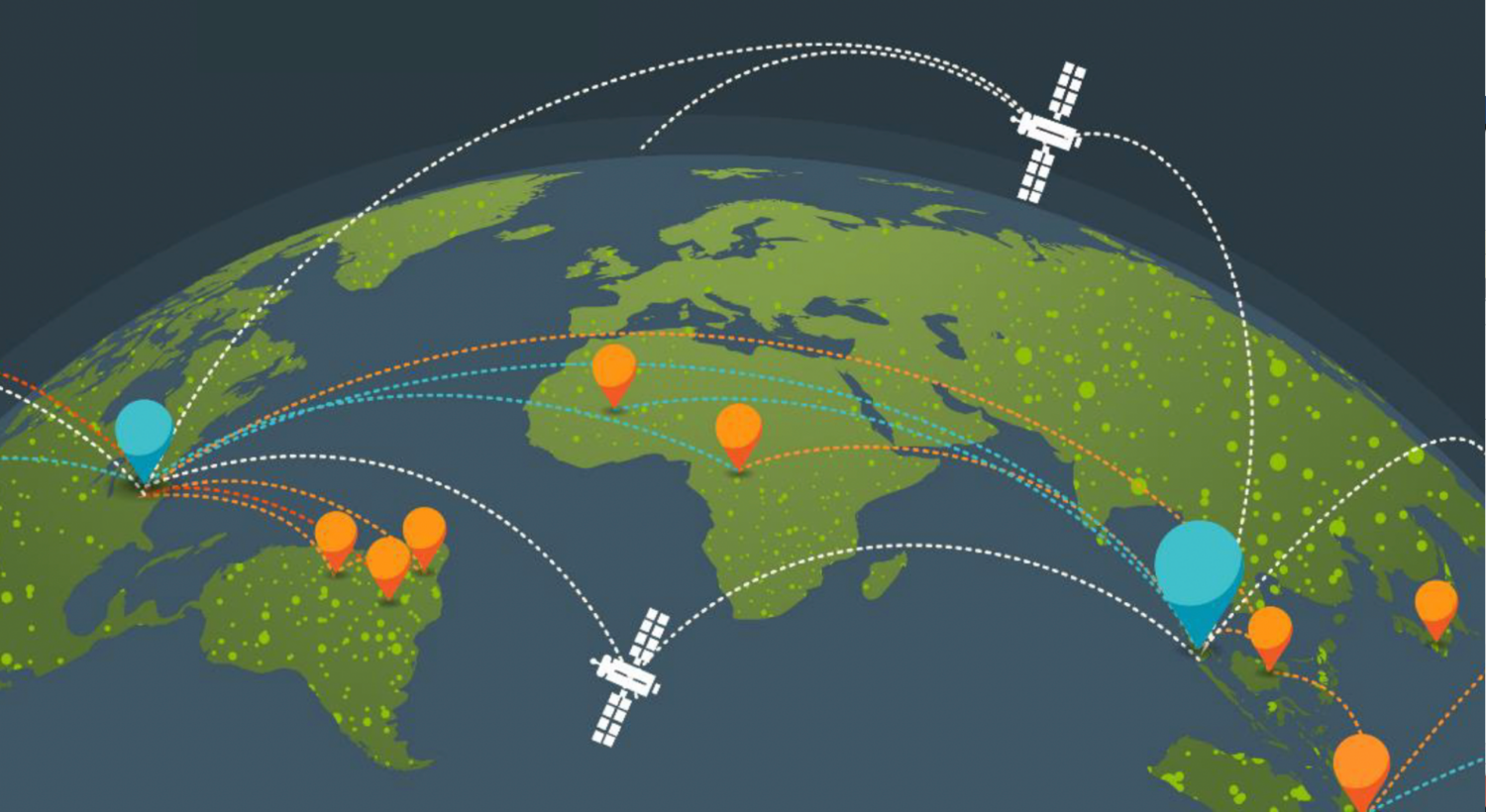
Palm Oil Firm Korindo Aims to Silence NGOs With Baseless “SLAPP” Lawsuit
First hearing in a German Court will be on January 22
Hamburg, Germany: Germany’s Rainforest Rescue (Rettet den Regenwald) and the Washington, D.C.-based Center for International Policy (CIP) blasted a baseless defamation lawsuit brought to the Hamburg Regional Court by a supplier to the Korindo conglomerate, a notorious Korean-Indonesian palm oil, logging and wind tower manufacturing giant. The first court hearing for the case is scheduled for 12:00 on January 22.
Korindo has engaged in large-scale deforestation and violations of the rights of Indigenous people in Papua and North Maluku, Indonesia, as exposed in Mighty Earth’s 2016 “Burning Paradise” report and numerous other reports, publications and documentaries, including a recent BBC exposé.
“This lawsuit is a classic dirty corporate strategy. In the face of mounting revelations about its massive rainforest destruction and abuse of Indigenous rights, Korindo is using this lawsuit to try to intimidate and silence NGOs, journalists, and activists from exposing its wrongdoing,” said Deborah Lapidus, Vice President of Mighty Earth. “But this is a grave miscalculation as it further exposes Korindo’s sinister approach and its continued denial of the harms it’s caused.”
The lawsuit hinges on letters signed by Mighty Earth, Rainforest Rescue and a coalition of other NGOs in October 2016 — over four years ago. Those letters sought to make some of the plaintiff’s major corporate wind tower customers – including Siemens AG (Germany) and Gamesa Corporation (now Siemens Gamesa) and Nordex SE (Germany) – aware of Korindo’s large-scale rainforest destruction in Indonesia. The lawsuit challenges some of the assertions in those letters and is demanding a retraction of those statements as well as seeking judicial penalties – including hefty fines and imprisonment – if they are repeated in future.
The lawsuit is an example of a Strategic Lawsuit Against Public Participation, or SLAPP suit. It’s part of an alarming worldwide trend in which powerful interests, including corporations or high-profile individuals, file lawsuits designed to harass and drain substantial resources from smaller watchdog organizations, activists, journalists, trade unions, media organizations, and those who represent the public interest.
“The destruction of the rainforests is one of the greatest environmental crimes of our time. But instead of prosecuting the perpetrators, courts are increasingly being used to harass environmentalists”, said Bettina Behrend, President of Rettet den Regenwald. “Our democracy has been turned upside down, the rule of law abused. But we will not be intimidated and are instead determined to raise our voices for the people who are suffering from environmental degradation.”
SLAPPs are a threat to democracy and fundamental rights, including freedom of speech and the right to assembly. There is growing public awareness of the visceral threat that SLAPP suits pose to the public’s right to be informed. European Commission Vice-President Věra Jourová recently vowed to “look into all possible options” to counter the threat SLAPPs pose to European democracy and a coalition of 87 journalistic and civil society organizations, including Mighty Earth, are calling on the European Union to adopt legislation to protect people across the EU against SLAPPs.
The choice of Germany as the location to pursue the lawsuit reflects how the company is pursuing “jurisdiction shopping” as a harassment strategy against organizations that expose environmental and human rights abuses in its operations. Germany has been identified by legal experts as one of several jurisdictions in the EU where national laws and court rulings have conferred advantages to filers of baseless defamation lawsuits.
This lawsuit is just the latest instance in which Korindo or alleged group companies have initiated or threatened legal action, or other intimidation measures, to try to bury exposure of its wrongdoing:
- In 2018, Korindo’s lawyers sent letters threatening legal action to several NGOs involved in exposing its practices all over the world.
- In September 2019, Korindo targeted the Forest Stewardship Council (FSC), a global certification body for responsible forest management, with dubious legal threats, including the reported delivery of a “cease and desist” letter to intimidate the FSC into withholding its planned release of a 100+ page public summary of its findings from a two-year investigation into the Korindo Group. Instead, the FSC released[i] a mere two page summary, which concluded Korindo violated its standards through significant conversion of forests, destruction of “high conservation value” forests, and violation of traditional and human rights. “Due to a disagreement with Korindo, the original complaints panel report is not available, but a summarized overview of the investigation findings can be found here,” states the FSC on its website.
- The FSC-commissioned “social analysis” of Korindo’s operations in Indonesia found that: “the affected communities have suffered considerable harms… These range from the threat and in some cases use of violence,in an ongoing atmosphere of intimidation (and above and beyond that associated with the prevailing local security setting) …”
- In response to a June 2020 Al Jazeera documentary about Korindo, Selling Out West Papua, Korindo issued a statementthreatening legal action.
- In a press statement responding to the November 2020 BBC documentary, The Burning Scar, Korindo referenced how it had taken NGOs to court over similar claims.
“Lawsuits against public interest organizations aren’t going to restore Korindo’s reputation or bring back the numerous palm oil and forest products customers that walked away from Korindo over its severe environmental harms,” said Lapidus. “Recent Korindo customers, including General Electric Corporation (USA), News Corps Australia, and Sumitomo Forestry (Japan) should urge the company to pursue remedy for the harms it has wrought on local communities and the planet’s last precious rainforests, instead of wasting time and money suing NGOs.”
—
[i] All of the FSC investigatory reports referenced above on Korindo can be found at the bottom of this webpage: https://fsc.org/en/unacceptable-activities/cases/korindo-group


